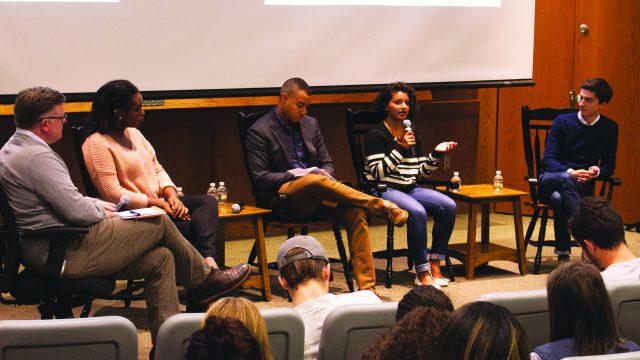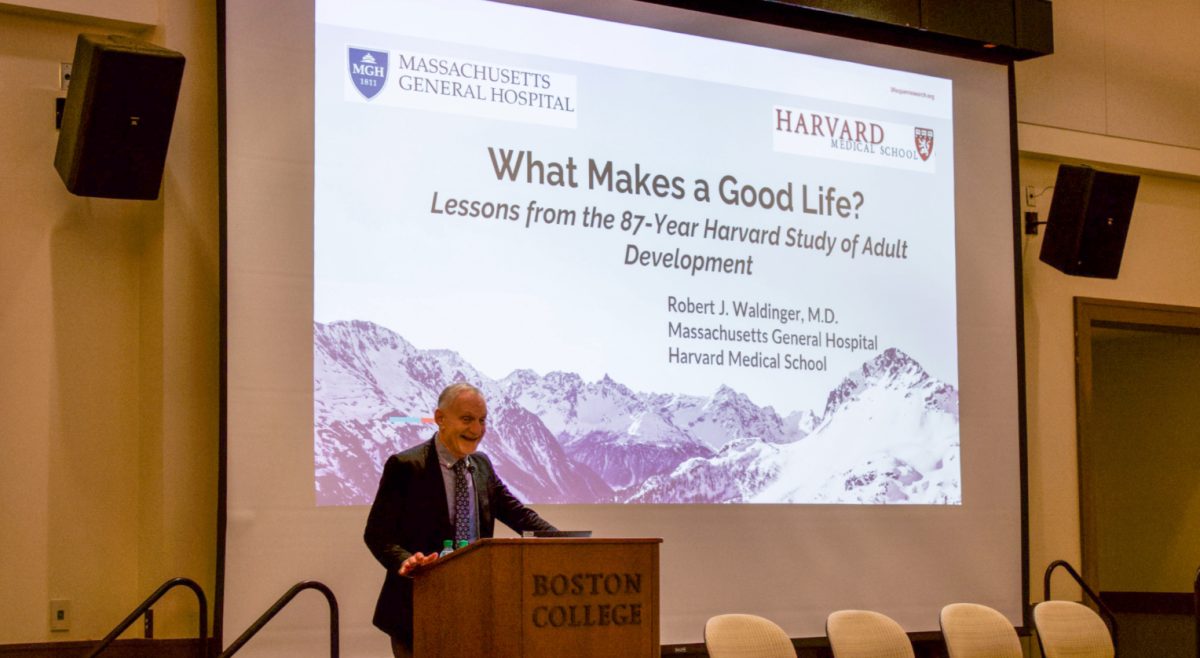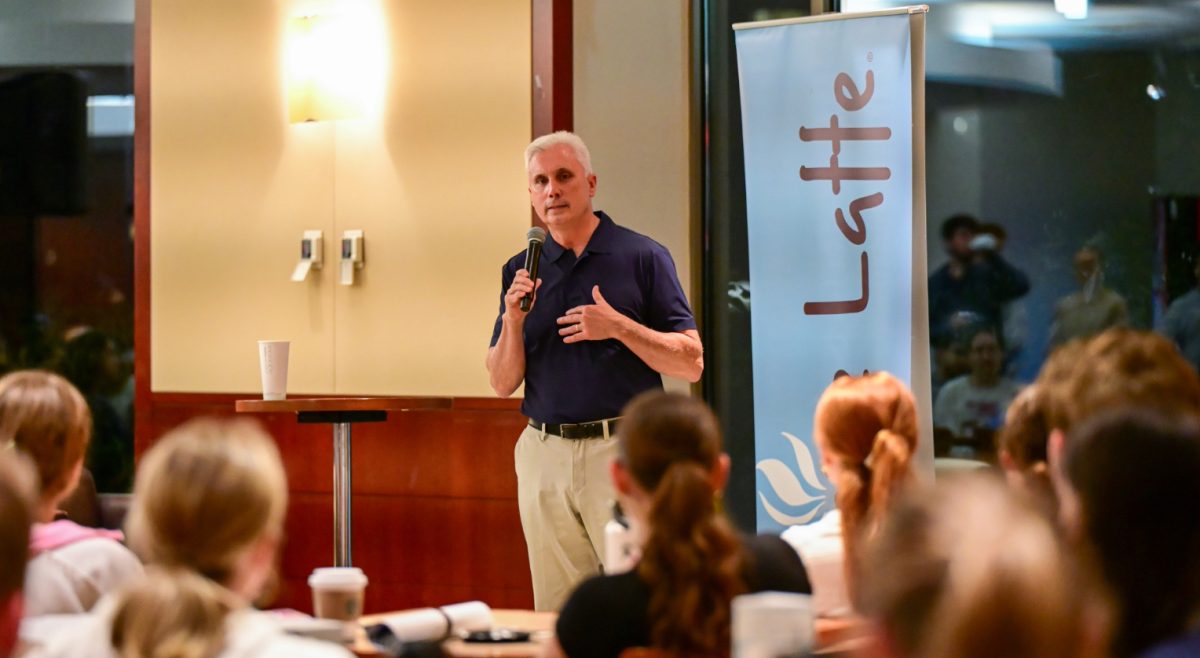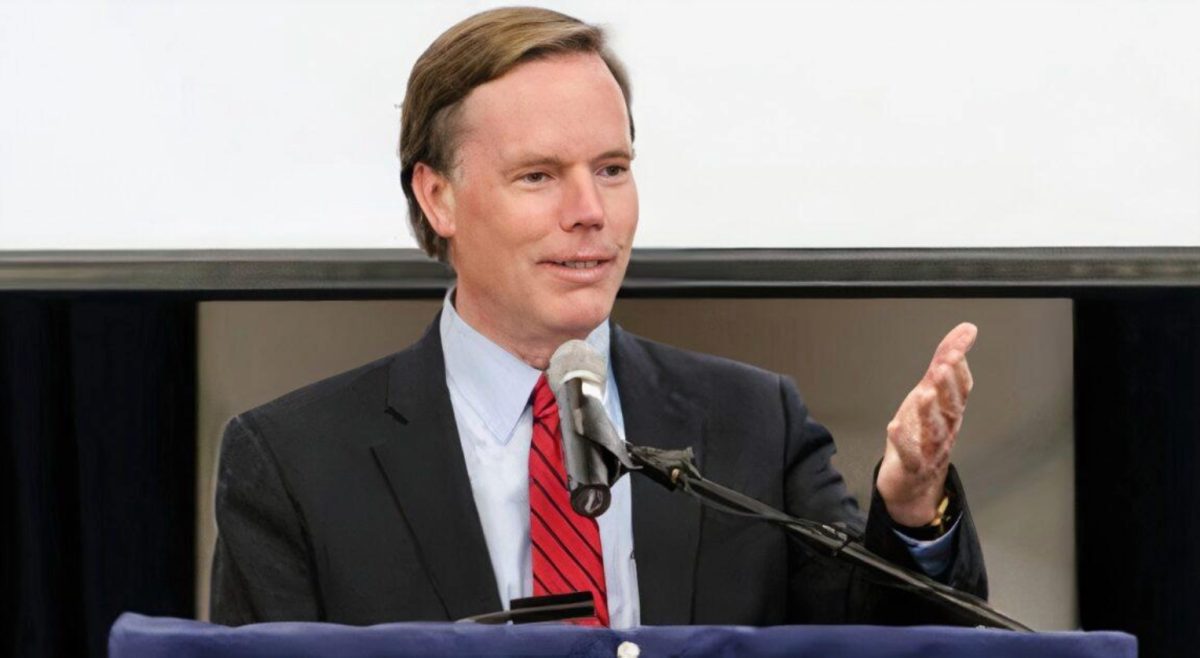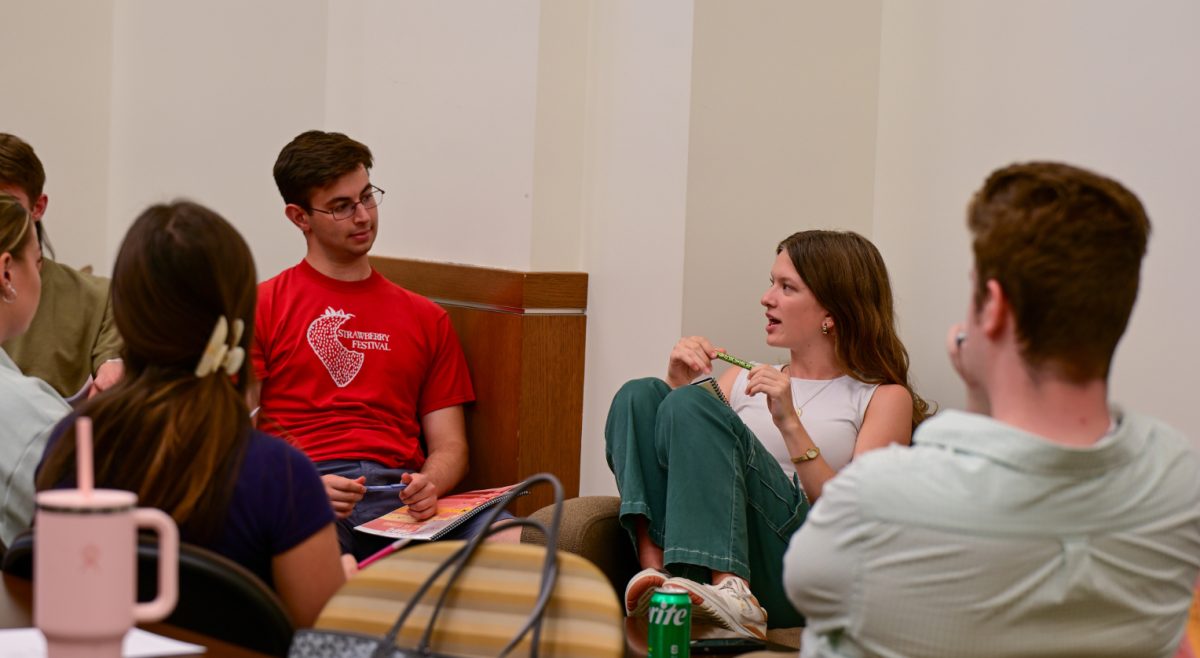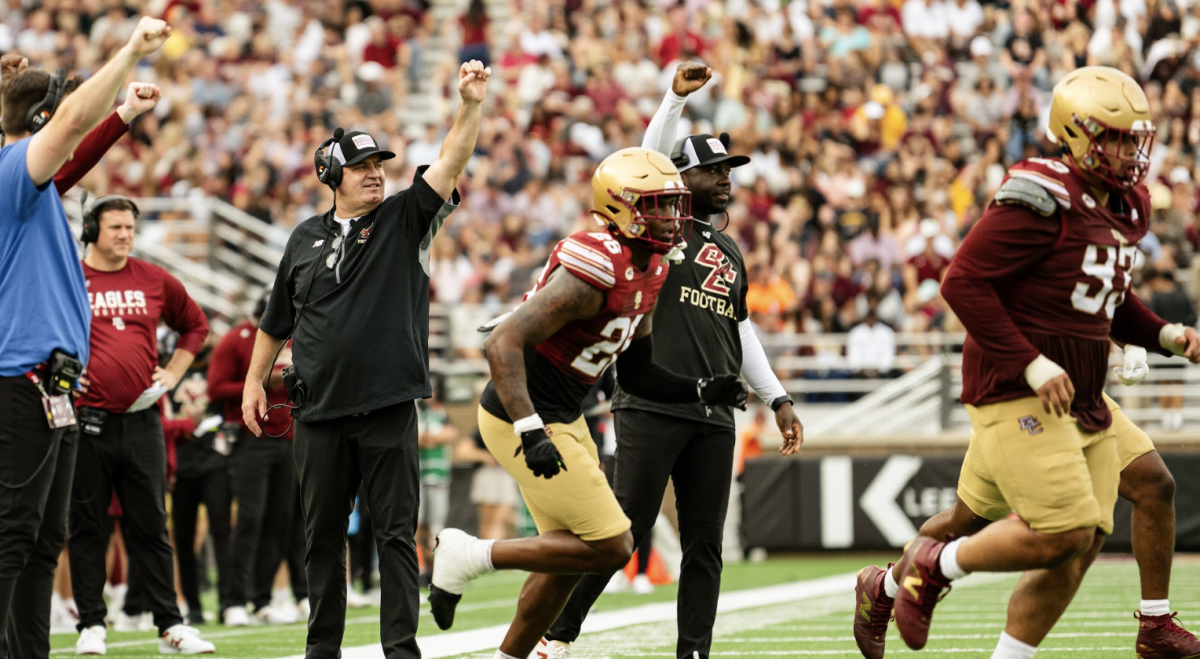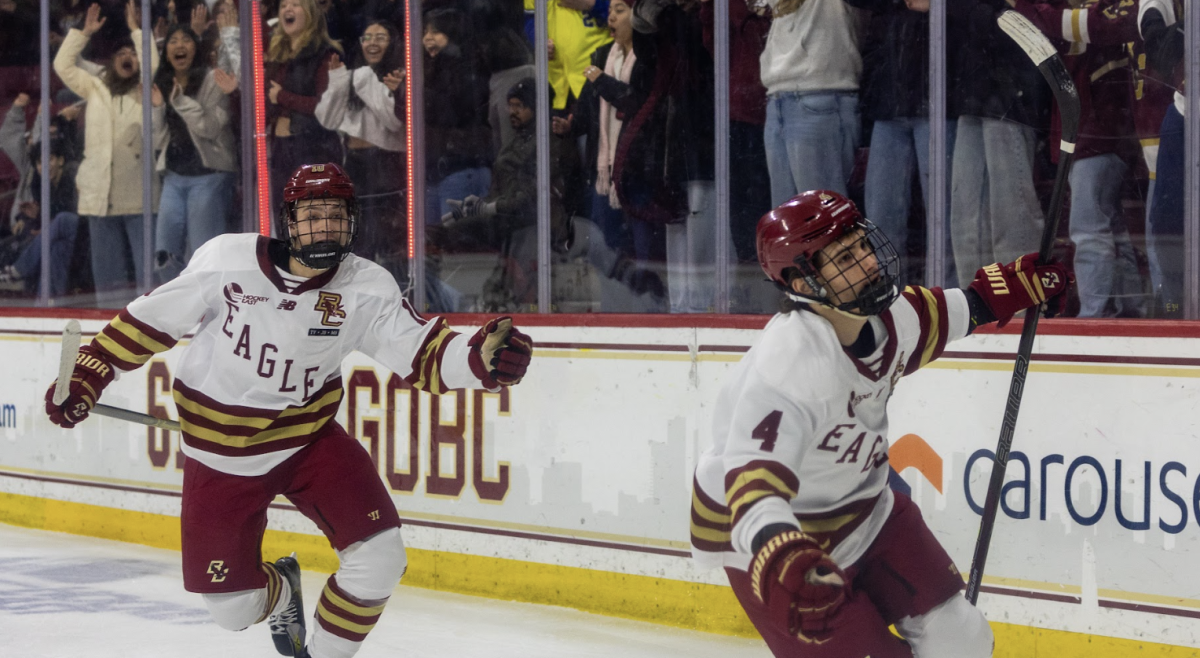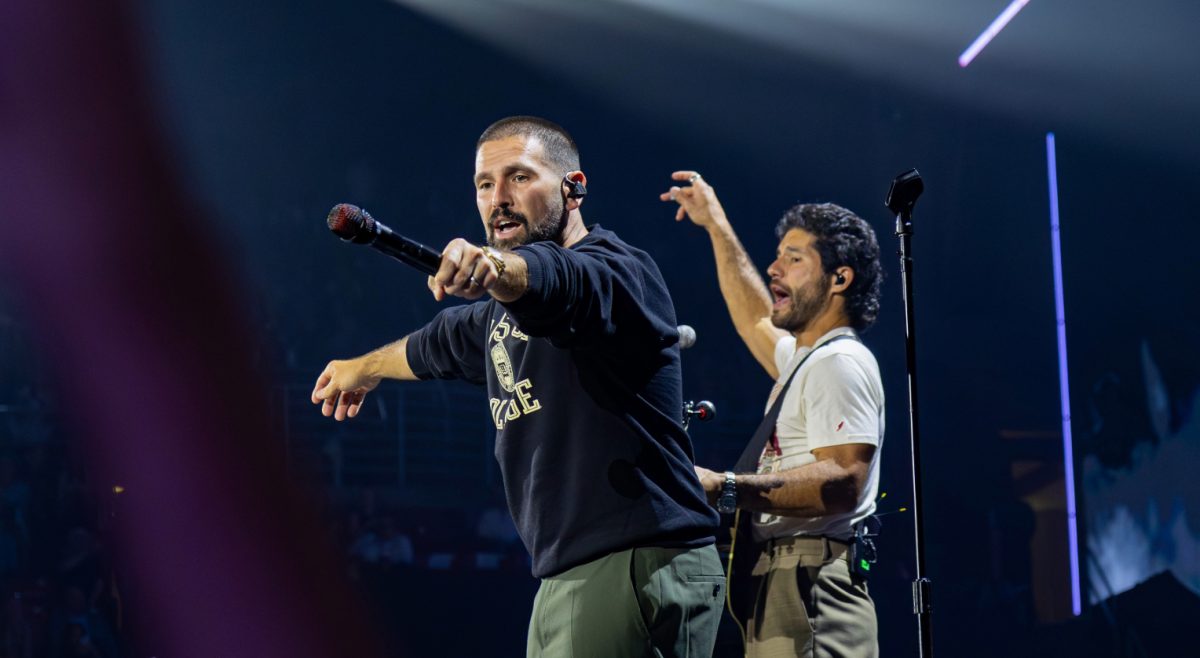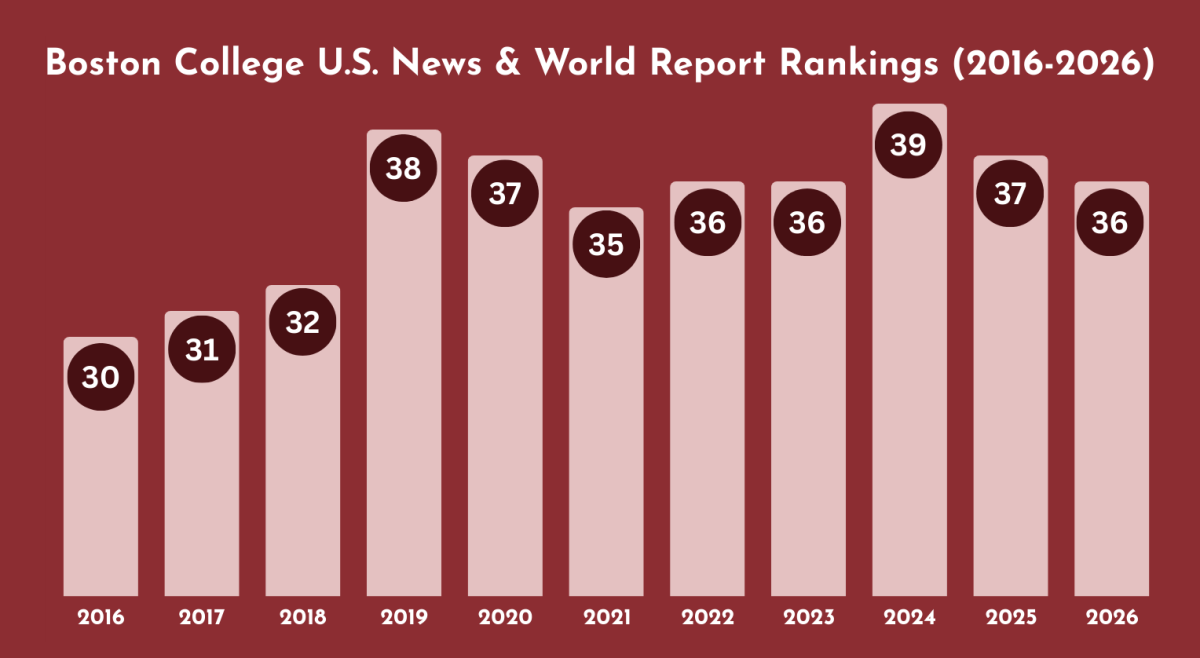For many students, Boston College can feel like a “bubble” that is largely impenetrable by real-world issues. On Wednesday night, this idea took center stage in Fulton Hall in a town hall discussion called “Speak, Stand, Sit, or Scream?” The meeting was sponsored by the Boisi Center for Religion and American Public Life and focused on how students engage with political and social issues, including racism, sexism, and homophobia, on campus.
Erik Owens, the discussion’s moderator and interim director of the Boisi Center, began the conversation by allowing four student panel members to speak about the issue that they believed to be the most important on campus. Russell Simons, Undergraduate Government of Boston College (UGBC) president and MCAS ’17, and Isra Hussain, MCAS ’17, both expressed their concerns with the gap between the Jesuit values that are taught at BC, and how they are applied to students’ everyday lives.
Throughout the discussion, the panelists acknowledged that the BC faculty does attempt to instill Jesuit values in its students in the classroom, but often these principles are not extended to their social lives.
“I don’t feel that push,” Simons said about the impact of Jesuit teaching.
The consensus between members of the panel was that for many students at BC, concern for one’s own professional success often takes precedent over the principle of being a man or woman for others.
Craig Ford, GMCAS ’21, and Najat Goso, MCAS ’17, believe that students are too fixated on personal success, and therefore fail to involve themselves in important social issues on campus.
“As students at BC, we are being conditioned to be a part of this upper class,” Goso said. “We are supposed to be taking things that we are learning here and doing something with them to make greater change in the rest of the world, and I feel as though the Jesuit education here could be tweaked in order to help that goal actually be attained.”
Ford took the conversation a step farther by explaining that BC is a “microcosm” of society at large. It is a common misconception that issues of racism, sexism, and homophobia do not exist on BC’s campus.
“I think we’re paralyzed by this notion of expertise. We read, we see ‘Someone, Ph.D., Head of State, Lord of the Universe,’ and we feel disqualified to think. Voting is actually a recognition that all of our thoughts matter. Vote, read, and if you don’t understand, ask.”
—Craig Ford, STM ’18
“I think that many of us are aware of structurally disadvantaging forces,” Ford said. “I think the big questions that we need to ask ourselves are how these structural forces are actually inhabiting our campus. When scholars and other leaders talk about white supremacy, there is a shock to think that white supremacy could be here at BC, but that’s something that we immediately have to engage.”
Despite efforts to raise the general level of student awareness, the panelists described how student groups often experience difficulty attracting the audiences necessary to enact meaningful change, as many students at BC are not directly affected by matters of inequality in relation to race, gender, or sexuality.
Hussain also talked an incident that occurred last week in which the letters on a sign in the Mod Lot were rearranged to say a homophobic slur. She noted that the same students tend to engage with controversial political issues on campus.
“There was an uproar from the LGBTQ community and its allies, but for the most part I found that conversation lacking in many facets of the BC community,” she said. “Whenever something racist is said in public or on BC campus, you see those same students that are responding to the homophobic incident.”
Such a lack of general student involvement inhibits BC’s process in becoming a more inclusive school, Goso said.
“I feel that these conversations aren’t as effective as they could be because there is not an audience there that needs to be there,” Goso said. “There needs to be students there who are not of color who come from affluent backgrounds, or people who don’t know what is going on. They need to be in these conversations. They need to be attending these events.”
Criticism for the administration at BC was also present in the conversation on Wednesday, with a member of the audience recounting the University’s reluctance to grant official student organization status to Climate Justice at BC, which became an official organization after multiple attempts. The panelists agreed that the Jesuit values of BC and the bureaucratic red tape involved in the approval of clubs and the posting of flyers often impede students’ efforts to spread information about pertinent issues.
The later part of the conversation was dominated by a discussion of the current presidential election, with the panelists underscoring the importance of civic engagement as a young person.
“I think it’s the intractable problem of our generation, to figure out how we formalize a group of people to take part in a larger application, for a group that is so inherently opposed to formalization,” Simmons said.
Ford explained that young people should not be intimidated by the political process.
“I think we’re paralyzed by this notion of expertise,” Ford said. “We read, we see ‘Someone, Ph.D., Head of State, Lord of the Universe,’ and we feel disqualified to think. Voting is actually a recognition that all of our thoughts matter. Vote, read, and if you don’t understand, ask.”
Featured Image by Josh Mentzer / Heights Staff

